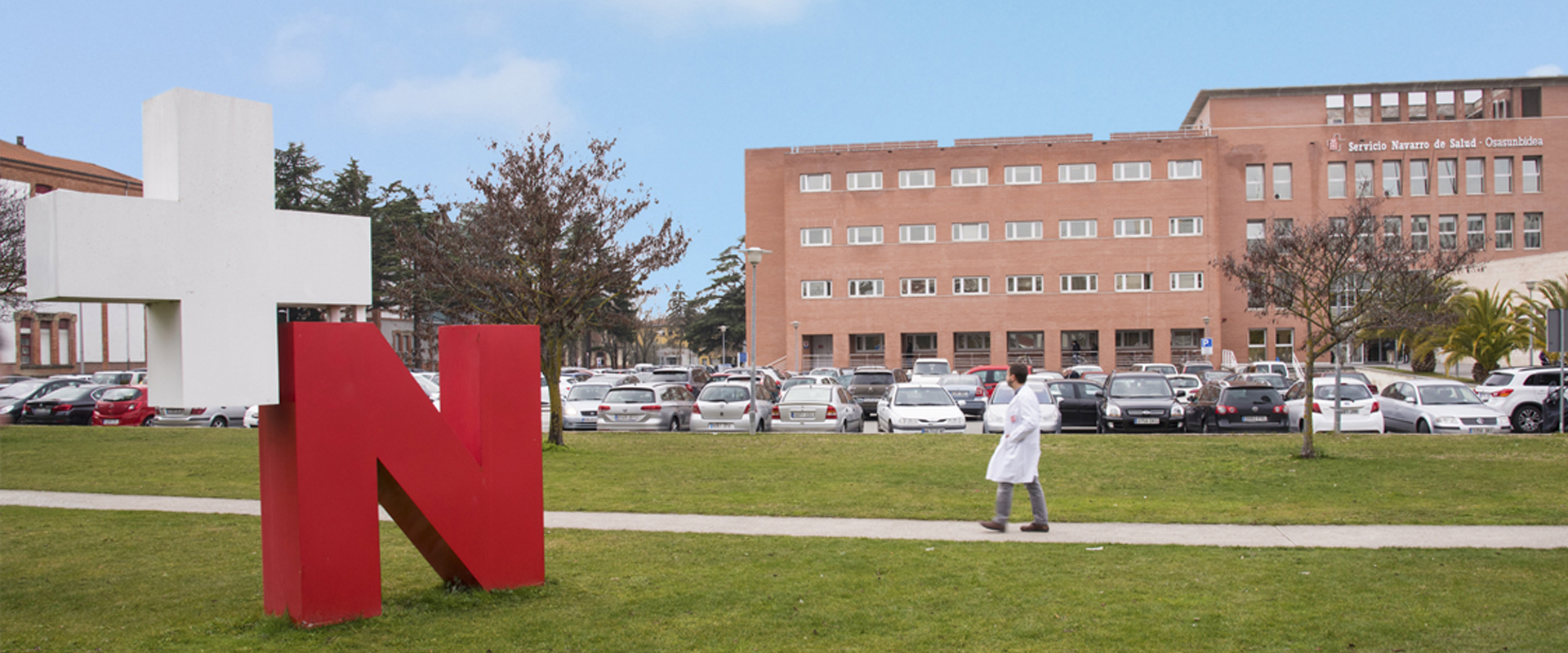
Government of Navarra makes 3.7 million Euro available to biomedical research projects carried out by Navarra Hospital Complex, Navarrabiomed, CIMA and Clínica Universidad de Navarra
- The Government-funded projects focus on personalised medicine, molecular patterns in cardiorenal syndrome and neurological disorder phenotypes.
The Directorate-General for Industry, Energy and Innovation has approved the allocation of funds to R&D projects to be carried out over the next three years. Three of these projects – granted 3,741,018.6 Euro – are biomedical research studies to be conducted by Navarrabiomed, Centro de Investigación Médica Aplicada (CIMA) and Clínica Universidad de Navarra (CUN).
These three projects are: Pharmanagen, led by Navarrabiomed, the joint biomedical research centre of the Government of Navarra and the Public University of Navarra (UPNA); MINERVA, led by CIMA, with participation of doctors from the Navarra Hospital Complex (CHN); and Geneurona, led by Clínica Universidad de Navarra.Ç*
Pharmanagen: genomics and prescription drugs.
Pharmanagen is being carried out by Navarrabiomed along with two partners: the Navarra Hospital Complex (CHN) and Pharmamodelling, a company providing data analysis services to the pharmaceutical industry. The goal of the project is the implementation of genomic methods and procedures for drug prescription in the Navarra Health System-Osasunbidea (SNS-O).
In this context, information about genetic variation in drug responses will be integrated into the health information systems to be used as a reference in drug prescription. Doctors will be able to take advantage of this information for deciding on a certain medicine or drug dosage more accurately, according to each patient’s genetic profile, so as to increase the effectiveness and reduce the toxicity of the medicines they prescribe.
The researchers involved in this project will use the whole exome sequencing of patients who are eligible for a drug whose activity has been conclusively proven to be affected by the patient’s genome.
In Pharmanagen, scientists will first study patients who are eligible for a blood cell transplant and those who suffer from inflammatory bowel disease.
The project is aimed at implementing personalised medicine in the SNS-O so that Navarra stands ahead of the curve at the national level in terms of genomic information in the public health system.
The scientific team that will carry out Pharmanagen will be led by Juan José Beloqui Lizaso of the Hospital Pharmacy Service at the Navarra Hospital Complex. Dr Beloqui will coordinate the project’s stages and partners.
The project, budgeted at 1,402,735.11 Euro, will be financed by the Economic Development Department.
MINERVA: public-private cooperation
MINERVA is a project that applies personalised medicine to cardiorenal syndrome in Navarra. Based on genomics, it aims at the identification of specific molecular alterations of patients with chronic heart failure and chronic kidney disease. The goal is to identify novel biomarkers that can be used to diagnose diseases or find targets with therapeutic potential to help doctors at the SNS-O and, in general, doctors based in Navarra implement precision medicine, especially when treating patients with chronic heart failure and chronic kidney disease.
Headed by Javier Díez (CIMA, CUN, University of Navarra), the project will involve the firm IKAN Biotech SL, the University of Navarra, CUN, CIMA and CHN.
Cardiologist María Teresa Basurte Elorz and nephrologist Joaquín Manrique Escola will coordinate MINERVA at the Navarra Hospital Complex, while cardiologist Juan José Gavira and nephrologist Nuria García Fernández be their counterparts at CUN. Biologist Arantxa González will be the coordinator of the project at CIMA, while geneticist José Luis Vizmanos will carry out MINERVA studies at the University of Navarra and biologist Roberto Díez, at IKAN Biotech SL.
The Government of Navarra will channel 1,267,022.84 Euro into this project.
Geneurona: diagnosing epilepsy and migraine
The third research project, Geneurona, will explore genomic diagnosis of epilepsy and migraine in Navarra. The project is getting 1,071,260.65 Euro from the Government of Navarra. The goal is to implement next-generation sequencing (NGS) technologies in clinical phenotype diagnosis and prognosis assessment in patients with neurological conditions like migraine and epilepsy.
Carried out by a multidisciplinary team led by Clínica Universidad de Navarra, Geneurona addresses the diagnostic process from the perspective of endophenotypes and their prognosis. The project is aimed at moving towards a precision medicine model and, as a result, a more efficient use of both health system resources and therapies. The project’s partners are Making Genetics, Applied Medical Research Foundation and the University of Navarra. María Cruz Rodríguez Oroz is the project leader.
By supporting these projects, the Economic Development Department wants to promote research activity, in particular, relevant R&D projects in the field of biomedicine, in accordance with the Intelligent Specialisation Strategy S3.
